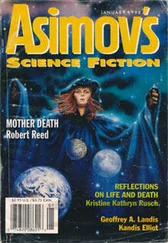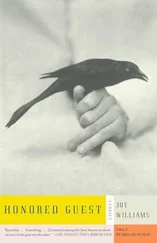Joy Williams - Taking Care
Здесь есть возможность читать онлайн «Joy Williams - Taking Care» весь текст электронной книги совершенно бесплатно (целиком полную версию без сокращений). В некоторых случаях можно слушать аудио, скачать через торрент в формате fb2 и присутствует краткое содержание. Год выпуска: 2010, Издательство: Vintage, Жанр: Современная проза, на английском языке. Описание произведения, (предисловие) а так же отзывы посетителей доступны на портале библиотеки ЛибКат.
- Название:Taking Care
- Автор:
- Издательство:Vintage
- Жанр:
- Год:2010
- ISBN:нет данных
- Рейтинг книги:5 / 5. Голосов: 1
-
Избранное:Добавить в избранное
- Отзывы:
-
Ваша оценка:
- 100
- 1
- 2
- 3
- 4
- 5
Taking Care: краткое содержание, описание и аннотация
Предлагаем к чтению аннотацию, описание, краткое содержание или предисловие (зависит от того, что написал сам автор книги «Taking Care»). Если вы не нашли необходимую информацию о книге — напишите в комментариях, мы постараемся отыскать её.
Taking Care — читать онлайн бесплатно полную книгу (весь текст) целиком
Ниже представлен текст книги, разбитый по страницам. Система сохранения места последней прочитанной страницы, позволяет с удобством читать онлайн бесплатно книгу «Taking Care», без необходимости каждый раз заново искать на чём Вы остановились. Поставьте закладку, и сможете в любой момент перейти на страницу, на которой закончили чтение.
Интервал:
Закладка:
“Listen up,” Dan said, “don’t talk to me like that any more.”
“Like what,” Jane said coolly.
Dan stood up and walked away while Jane was saying, “The thing I don’t understand is how she ever got into that apartment. My father had about a dozen locks on the door.”
Dan sat in her seat in the quiet, dark coach and looked out at the dark night. She tried to recollect how it seemed dawn happened. Things just sort of rose out, she guessed she knew. There was nothing you could do about it. She thought of Jane’s dream in which the men in white bathing caps were pushing all her grandma’s things out of the house and into the street. The inside became empty and the outside became full. Dan was beginning to feel sorry for herself. She was alone, with no friends and no parents, sitting on a train between one place and another, scaring herself with someone else’s dream in the middle of the night. She got up and walked through the rocking cars to the Starlight Lounge for a glass of water. After four A.M. it was no longer referred to as the Starlight Lounge. They stopped serving drinks and turned off the electric stars. It became just another place to sit. Mr. Muirhead was sitting there, alone. He must have been on excellent terms with the stewards because he was drinking a Bloody Mary.
“Hi, Dan!” he said.
Dan sat opposite him. After a moment she said, “I had a very nice summer. Thank you for inviting me.”
“Well, I hope you enjoyed your summer, sweetie,” Mr. Muirhead said.
“Do you think Jane and I will be friends forever?” Dan asked.
Mr. Muirhead looked surprised. “Definitely not. Jane will not have friends. Jane will have husbands, enemies and lawyers.” He cracked ice noisily with his white teeth. “I’m glad you enjoyed your summer, Dan, and I hope you’re enjoying your childhood. When you grow up, a shadow falls. Everything’s sunny and then this big Goddamn wing or something passes overhead.”
“Oh,” Dan said.
“Well, I’ve only heard that’s the case actually,” Mr. Muirhead said. “Do you know what I want to be when I grow up?” He waited for her to smile. “When I grow up I want to become an Indian so I can use my Indian name.”
“What is your Indian name?” Dan asked, smiling.
“My Indian name is ‘He Rides a Slow Enduring Heavy Horse.’”
“That’s a nice one,” Dan said.
“It is, isn’t it?” Mr. Muirhead said, gnawing ice.
Outside, the sky was lightening. Daylight was just beginning to flourish on the city of Jacksonville. It fell without prejudice on the slaughterhouses, Dairy Queens and courthouses, on the car lots, sabal palms and a billboard advertisement for pies.
The train went slowly around a long curve, and looking backward, past Mr. Muirhead, Dan could see the entire length of it moving ahead. The bubble-topped cars were dark and sinister in the first flat and hopeful light of the morning.
Dan took the three postcards she had left out of her bookbag and looked at them. One showed Thomas Edison beneath a banyan tree. One showed a little tar-paper shack out in the middle of the desert in New Mexico where men were supposed to have invented the atomic bomb. One was a “quicky” card showing a porpoise balancing a grapefruit on the top of his head.
“Oh, I remember those,” Mr. Muirhead said, picking up the “quicky” card. “You just check off what you want.” He read aloud, “How are you? I am fine () lonesome () happy () sad () broke () flying high() ” Mr. Muirhead chuckled. He read, “ I have been good() no good (). I saw The Gulf of Mexico () The Atlantic Ocean () The Orange Groves () Interesting Attractions () You in My Dreams ().”
“I like this one,” Mr. Muirhead said, chuckling.
“You can have it,” Dan said. “I’d like you to have it.”
“You’re a nice little girl,” Mr. Muirhead said. He looked at his glass and then out the window. “What do you think was on that note Mrs. Muirhead had you give me?” he asked. “Do you think there’s something I’ve missed?”
The Excursion

J ENNY lies a little. She is just a little girl, a child with fears. She fears that birds will fly out of the toilet bowl. Starlings with slick black wings. She fears trees and fishes and the bones in meat. She lies a little but it is not considered serious. Sometimes it seems she forgets where she is. She is lost in a place that is not her childhood. Sometimes she will say to someone, Mrs. Coogan at the Capt’n Davy Nursery School, for example, that her mother is dead, her father is dead, even her dog Tonto is dead. She will say that she has no toys, that she lives with machinery she cannot run, that she lives in a house with no windows, no view of the street, that she lives with strangers. She has to understand everything herself.
Poor Mrs. Coogan! She pats Jenny’s shoulder. Jenny wears pretty and expensive dresses with blue sneakers. The effect is charming. She has blond hair falling over a rather low brow and an interesting, mobile face. She does everything too fast. She rushes to bathtimes and mealtimes and even to sleep. She sleeps rapidly with deep, heartbreaking sighs. Such hurry is unnecessary. It is as though she rushes forward to meet even her memories.
Jenny does not know how to play games very well. When the others play, she is still. She stands with her stomach thrust out, watching the others with a cool, inward gaze. Sometimes, something interrupts her, some urgent voice, perhaps, or shout, and she makes a startled, curious skip. Her brown eyes brim with confusion. She turns pale or very red. Yes, sometimes Jenny has bad days. The crayons are dead, the swings are dead, even little Johnny Lewis who sits so patiently on his mat at snacktime will be dead. He is thirsty and when he gets the cup of juice which Mrs. Coogan gives him, Jenny is glad for his sake.
“I am so happy Johnny Lewis got his juice!” Jenny cries.
Poor Mrs. Coogan. The child is such a puzzle.
“I don’t care for the swimming,” Jenny tells her, even though Mrs. Coogan doesn’t take her little group swimming. She takes them for a walk. Down to the corner, where the school bus carrying the older children goes by.
“Perhaps you’ll like it when you get a little older, when you get a little better at it,” Mrs. Coogan says.
Jenny shakes her head. She thinks of all the nakedness, milling and bobbing and bumping against her in the flat, warm, dark water. She says this aloud.
“Oh my dear,” Mrs. Coogan says.
“I don’t understand about the swimming,” Jenny says.
Jenny’s father picks her up at four. In the car, he always has a present for her. Today it is a watch. It is only a toy watch, but it has moving parts and the manufacturer states that if it is not abused it will keep fairly reasonable time.
Mrs. Coogan says to Jenny’s father, “All children fib a little. It’s their nature. Their lives are incompatible with the limits imposed upon their experience.”
Jenny feels no real insecurity while Mrs. Coogan speaks, but she is a little anxious. She is with a man. She doesn’t smell very good. Outside other men are striking the locked door with sticks.
“Leña,” they call. “Leña.”
Jenny’s father frowns at Mrs. Coogan. He does not wish to be aware that Jenny lies. To him, it is a terrible risk of oneself to lie. It risks control, peace, self-knowledge, even, perhaps, the proper acceptance of love. He is a thoughtful, reasonable man. He loves his only child. He wills her safe passage through the world. He does not wish to acknowledge that lying gives a beat and structure to Jenny’s life that the truth has not yet justified. Jenny’s imagination depresses him. He senses an ultimatum in it.
Читать дальшеИнтервал:
Закладка:
Похожие книги на «Taking Care»
Представляем Вашему вниманию похожие книги на «Taking Care» списком для выбора. Мы отобрали схожую по названию и смыслу литературу в надежде предоставить читателям больше вариантов отыскать новые, интересные, ещё непрочитанные произведения.
Обсуждение, отзывы о книге «Taking Care» и просто собственные мнения читателей. Оставьте ваши комментарии, напишите, что Вы думаете о произведении, его смысле или главных героях. Укажите что конкретно понравилось, а что нет, и почему Вы так считаете.












